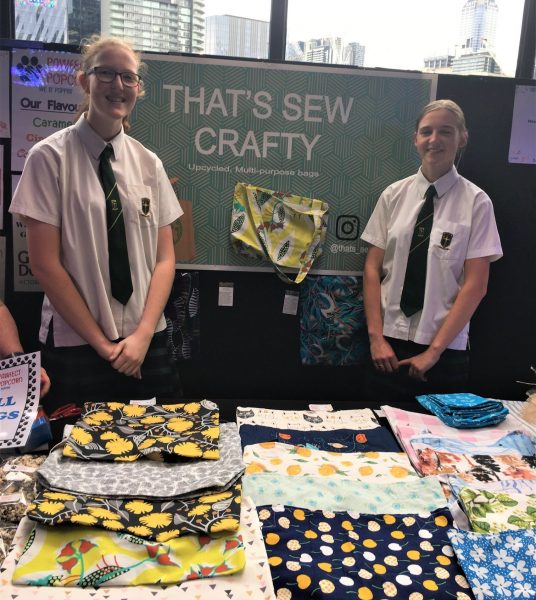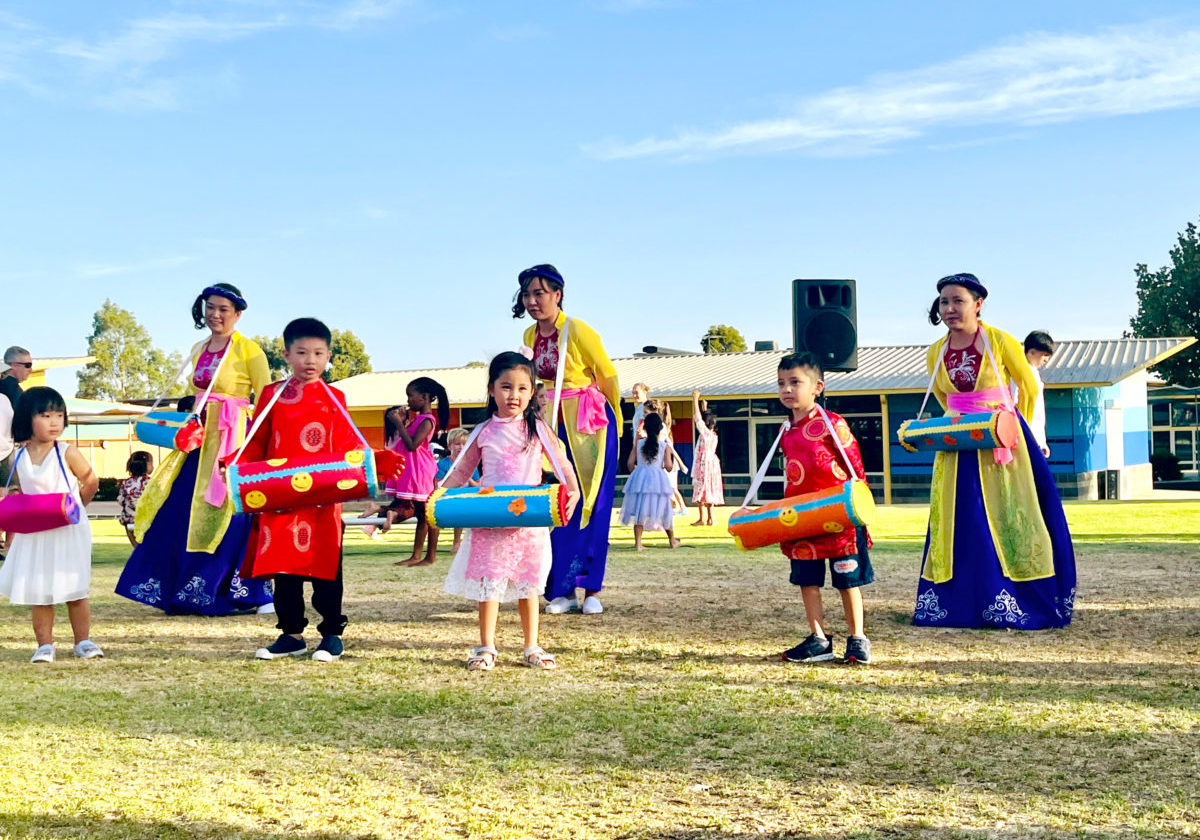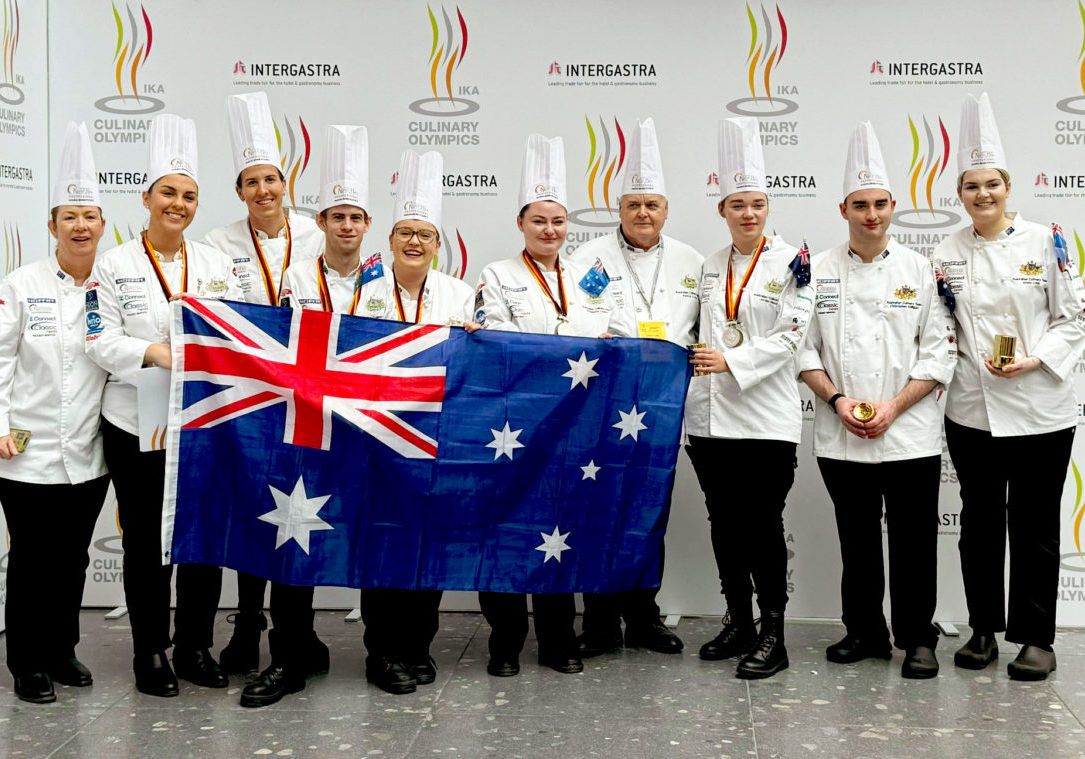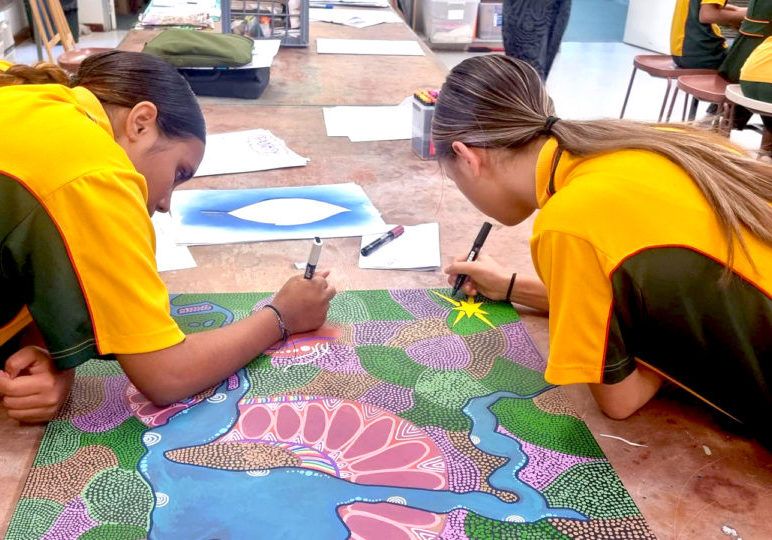Boss-mode: Nagle entrepreneurs lead National challenge
03 January 2019
Students from Nagle Catholic College in Geraldton showed country kids can mix it with the best after placing highly in the Foundation for Young Australians’ $20 Boss Challenge last term.
The challenge is an immersive entrepreneurship program for secondary schools where students are provided $20 of start-up capital to create, launch and operate their venture over the course of a school term.
Humanities teacher John Niemeyer’s year 10 classes have been participating in the program since it started three years ago.
In 2018 more than 480 schools competed nationally, with 20,000 students involved, and 6000 entries judged.
Nagle had three notable successes, with the That’s Sew Crafty team placing second in Australia and being highly commended for Enterprise of the Year for years 10 to 12.
Team members Mikaela McAuliffe and Talisha Wells travelled to Melbourne for the final judging in November.
That’s Sew Crafty created reusable, multi-purpose bags made from recycled fabrics such as curtains, clothing and scraps that would otherwise go to landfill.
Their business aimed to solve environmental issues such as excess waste and plastic pollution by offering an alternative that is both fashionable and practical.

The team of 3s Scents – Shania Beck, Sydney Davis and Summer Toke – made amazing candles and were highly commended in the Rookie Enterprise of the Year category, Years 10 to 12.
They used donated dye, wicks and wax, recycled jars, coffee cups, tea cups and saucers to make eco-friendly scented candles and decorated the products using pre-loved materials, ribbon, lace, string and beads.
The business was in line with the local council’s initiative of reducing and managing waste.
Essentially You – Gracie Fisher, Coco Shaw and Yen Tran Thi Hai – made eco-friendly perfumes and were the State winners in the Innovate like a Boss category, Years 10 to 12.
The team created long-lasting, safe and ethical scents using only coconut oil and essential oils.
Cutting down on harsh chemicals not only made the product safe but it also made the price cheaper increasing their products competitivity in the market.
A total of $1,300 was raised by the class to donate to the Lions Club ‘Need for a Feed’ program to support drought-stricken farmers in NSW, which ensured the businesses benefited both society and the environment.
You can hear Talisha and Mikaela, as well as Humanities teacher, Mrs Niemeyer talk about their experience in an interview for ABC Radio Midwest and Wheatbelt.




